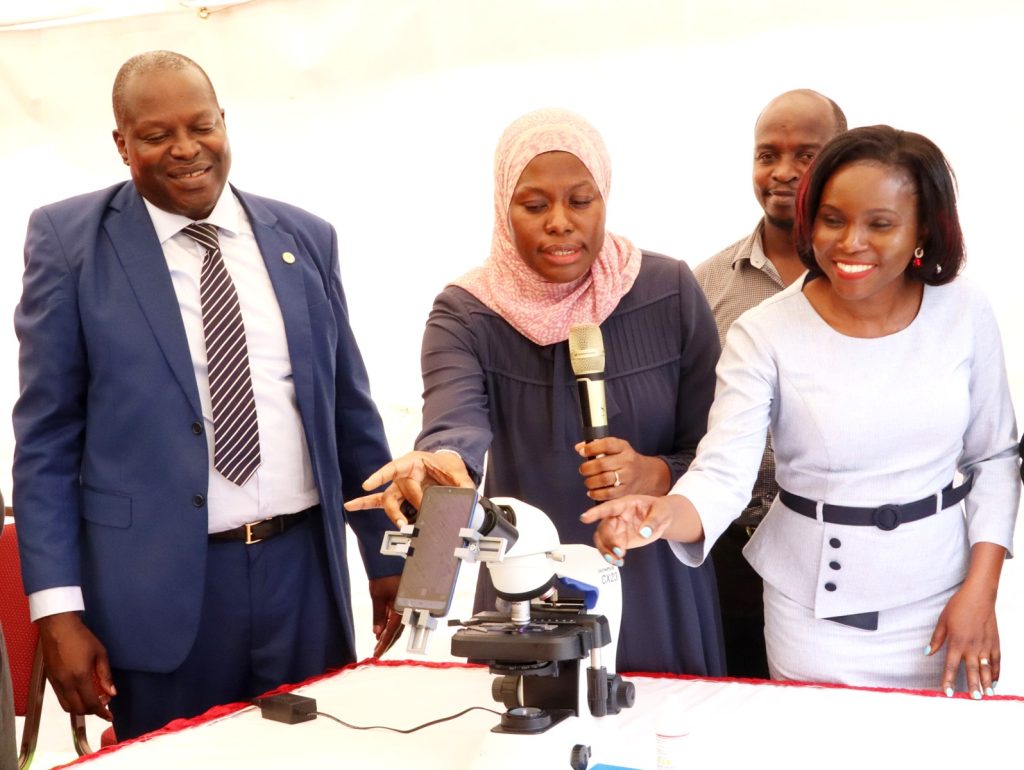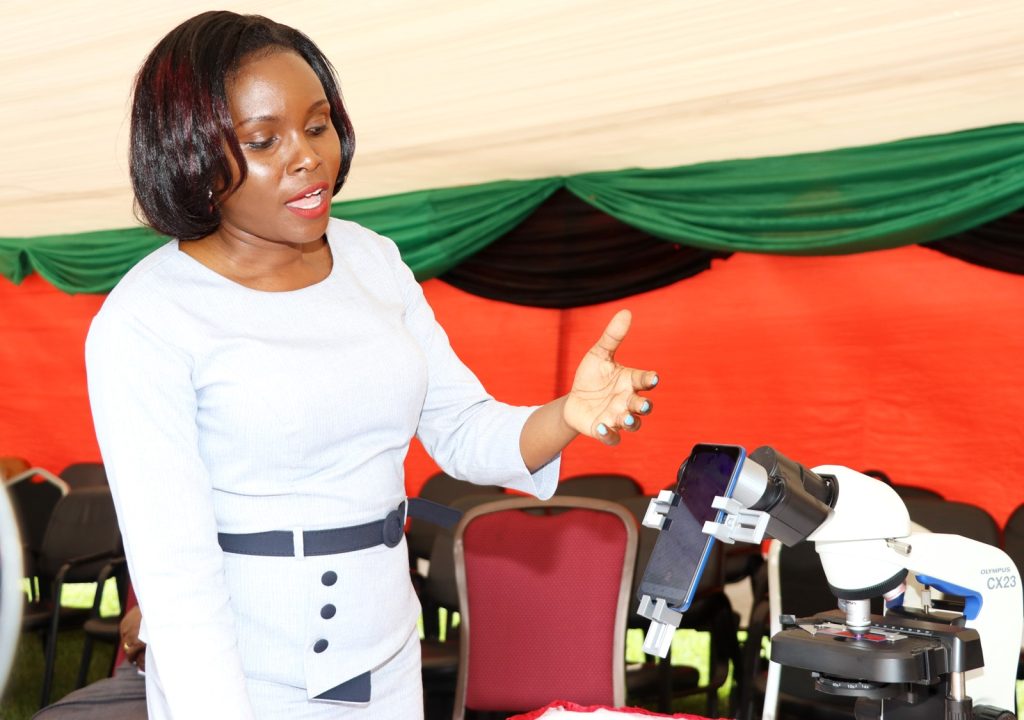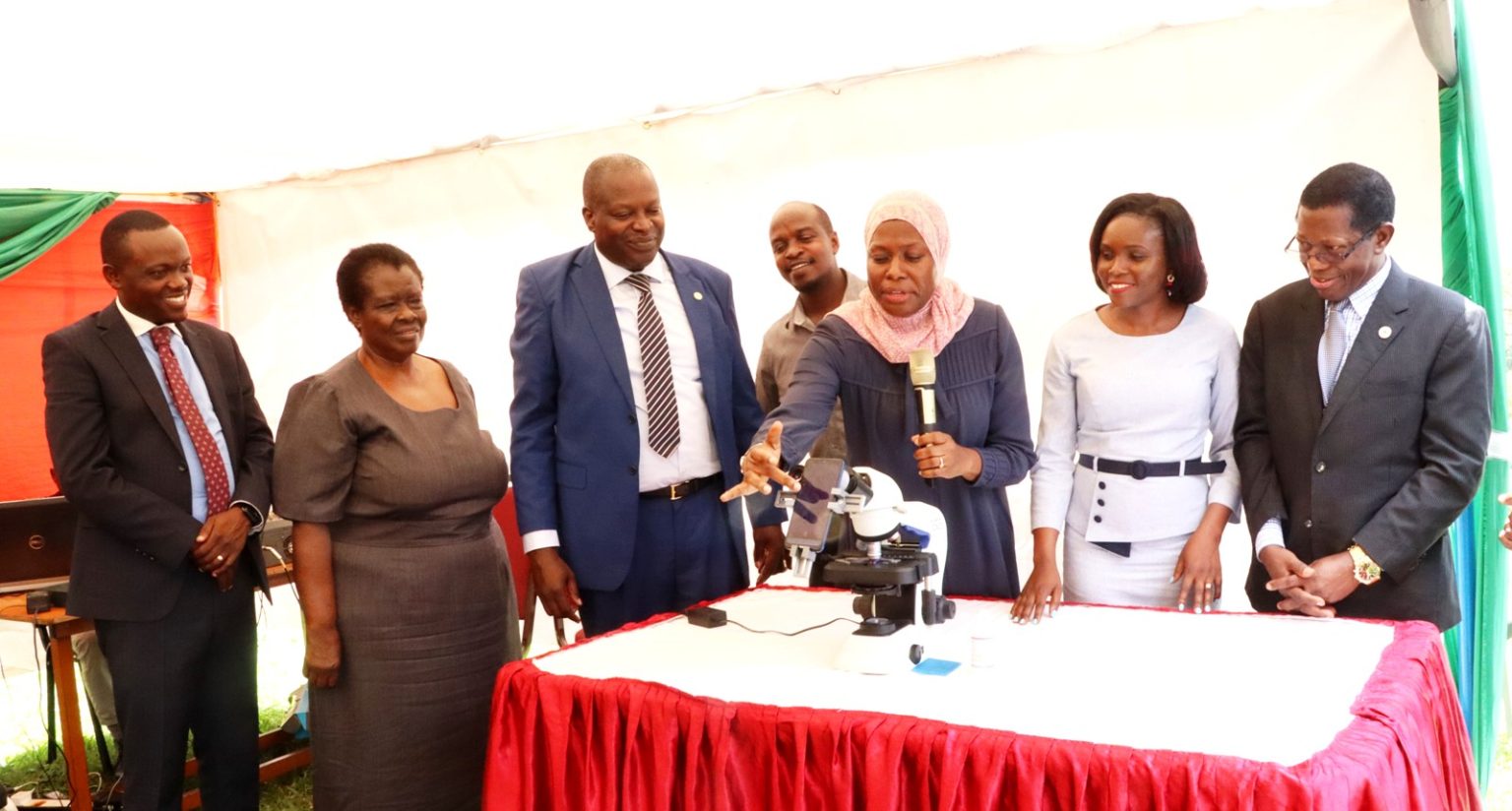Makerere University under its Artificial Intelligence Lab received a grant funding worth US$1,500,000 from Google to support its Ocular project that is undertaking research on usage of Artificial Intelligence to enhance the diagnosis process of Malaria, Tuberculosis and Cervical Cancer in Uganda. This grant is in addition to what Makerere University received from Google’s philanthropic arm in 2019 for development of AirQo, an air monitoring project that uses Artificial Intelligence (AI) and low-cost technologies to generate and quantify data on air pollution in the designated areas in Uganda.
The Ocular Project was officially launched on 13th September 2023, by the Permanent Secretary, Ministry of Information and Communications Technology and National Guidance (MoICT & NG), Dr. Aminah Zawedde. The research is being undertaken by Makerere University College of Computing and Information Sciences (CoCIS) in collaboration with the Makerere University School of Public Health (MakSPH).

The Ocular Project aims at building a standardized point-of-care mobile microscopy for disease diagnosis with a specificity of up to 99%. The solution’s current focus is on malaria, tuberculosis and cervical cancer in Uganda. The project team benched on the rampant challenges faced by the laboratory experts while undertaking diagnosis procedures.
“In our interaction with some experts from the health sector, we found out that it was indeed straining for health centres in Uganda to manage the escalating number of patients that seek for laboratory screening tests. In addition, the team noted that the country is also blessed with a few trained laboratory technicians to support the diagnosis process using the microscope,” PI-Dr. Rose Nakasi said.


